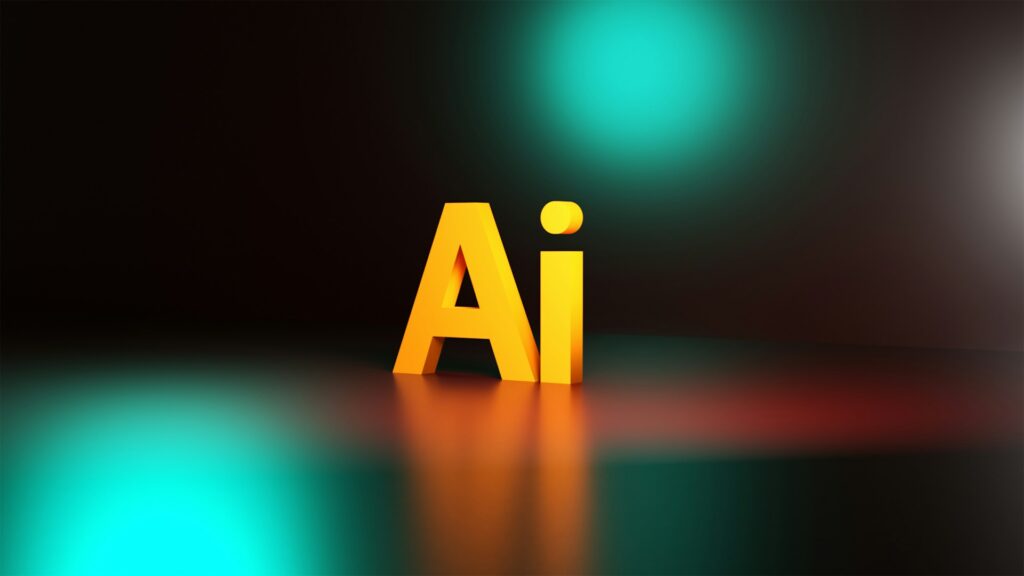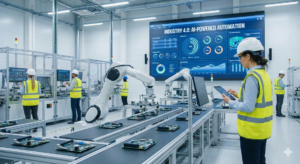How artificial intelligence will forever alter the way software is written

How artificial intelligence will forever alter the way software is written
Humans have been responsible for developing logic, typing code, and debugging each line of code for decades when it comes to writing software. This process, however, is being completely revolutionized by artificial intelligence from the ground up. Artificial intelligence is evolving into a true collaborator, one that comprehends context, learns from codebases, and is capable of generating, testing, and optimizing software at a quicker rate than any human team. It is no more something that simply boosts productivity. This new era of co-evolution between humans and intelligent machines is replacing the previous period of manual programming, which is quickly becoming obsolete.
Automated processes to collaborative efforts
Automating repetitious chores such as code formatting, grammar checking, or autocompletion was one of the first things that early coding tools did. The artificial intelligence systems of today are able to comprehend complete codebases, documentation, and natural language requirements because they are powered by large language models (LLMs) such as GPT and Claude. They are capable of writing entire functions, fixing problems, and even suggesting enhancements to the programming architecture. There has been a significant shift: developers are no longer responsible for producing each and every line of code; instead, they are guiding AI partners that write, evaluate, and optimize on their behalf.
The Emergence of Natural Language as the New Operating System Interface
The development of software will not begin with a blank text editor in the not too distant future; rather, it will begin with a conversation. The developers will define what they require, such as “Build me a web app that tracks expenses, syncs with Google Sheets, and uses dark mode,” and the artificial intelligence will immediately construct the scaffolding for them. This advancement, which is driven by natural language, lowers the barrier to entry, making it possible for individuals who do not have formal programming backgrounds to participate in the processes of producing software. Increasingly, the language of ideas is developing into the language of code.
Code generation and refactoring that is more intelligent
Artificial intelligence models that have been trained on vast libraries of open-source code are now able to comprehend the programming style and intent. Not only do they develop code, but they also explain it to themselves. Whether it’s suggesting methods that are more efficient, discovering performance bottlenecks, or automatically rewriting legacy systems, artificial intelligence tools such as GitHub Copilot, Amazon CodeWhisperer, and Tabnine are transforming the way in which engineers maintain and enhance their codebases. Not only does this automation speed up the development process, but it also helps reduce the amount of technical debt over time.
Correction of Bugs and Prevention of Errors
One of the most direct effects of artificial intelligence is in the area of debugging, which is a task that can take up to half of a developer’s time. In real time, artificial intelligence is able to identify, explain, and repair common issues, frequently before the code is even built. Through the use of pattern recognition and historical analysis, artificial intelligence is able to forecast potential problem areas and provide solutions to avoid them from occurring. In essence, the compiler of the future will not merely check for syntax problems; rather, it will serve as a guide, instructing developers on how to write code in a faster and more efficient manner.
The Emergence of Coding Agents That Are On Their Own
Autonomous coding agents, which are artificial intelligence systems that are able to read documentation, browse application programming interfaces (APIs), and independently carry out software tasks, are the next frontier. This group of agents is capable of designing modules, writing tests, deploying software, and even communicating with other agents in order to successfully finish complex tasks. Imagine giving a natural language request, such as “Create a cross-platform chat app with end-to-end encryption,” and then watching as multiple AI agents split, create, and integrate components without any human intervention. Not only is this not science fiction, but it is already in the experimental stages, using tools such as Devin, SWE-Agent, and AutoGPT.
The Reimagining of Continuous Integration and Testing Concepts
Intelligent test generation, dynamic coverage analysis, and anomaly detection are some of the ways that artificial intelligence is helping to streamline software testing. It is possible for developers to direct artificial intelligence to construct complete test suites that can react to the changing code rather than manually writing unit tests. Platforms for testing that are powered by artificial intelligence may replicate user behavior, perform performance stress tests, and even identify security problems before they are deployed. This paves the way for a future in which every commit is instantly verified, optimized, and validated, thereby transforming continuous integration into continuous intelligence.
The Influence on the Roles of Developers
It is expected that the role of the human developer will change as artificial intelligence takes over more of the mundane and mechanical aspects of coding. The amount of time that programmers spend creating syntax will decrease, and they will spend more time developing systems, validating outputs, and maintaining high-level goals. In the future, the most valuable skills will be those that include creativity, architecture, and ethical judgment. It is not enough for the top developers to simply write code; they will also coach artificial intelligence systems to provide the appropriate results in an efficient and responsible manner.
The democratization of software development
The uniqueness of software engineering is being challenged by artificial intelligence. The ability to develop and deploy applications through plain-language interfaces will soon be available to professions who are not technically oriented, such as designers, analysts, and entrepreneurs. As a result of this democratization of software creation, millions of people will have the ability to construct tools that are specialized to their particular requirements without having to rely on traditional development teams. In the same way that low-code and no-code platforms made it easier to create apps, artificial intelligence will remove the last remaining obstacles to digital innovation.
Changing the Meaning of Productivity and Working Together
There has already been a significant increase in productivity among development teams that have been upgraded with AI. AI enables teams to concentrate on innovation and strategy since it takes care of repetitive tasks such as testing, documentation, and boilerplate coding. Pair programming that is driven by artificial intelligence also improves collaboration, which helps to ensure that distant teams produce code of the same quality. It is expected that artificial intelligence systems would function as “institutional memory” in large organizations, remembering design decisions, problem fixes, and standards over multiple generations of projects.
Considerations Regarding Ethical and Safety Issues
New responsibilities come along with increased levels of automation. In the areas of responsibility, intellectual property, and cybersecurity, the introduction of AI-written code will present issues. Who is accountable in the event that code developed by AI fails or violates the terms of a license for software? In addition, artificial intelligence models that are trained on public repositories may unwittingly reproduce patterns that are either biased or unsafe. When it comes to preserving trust in this new ecosystem, it will be essential to ensure that there is openness, auditing capabilities, and ethical governance in the development of AI-assisted software.
What the Future Holds for Education in Programming
Artificial intelligence’s increasing significance in the development of software will radically alter the way that programming is taught. The next generation of software engineers will not be required to memorize syntax or methods; rather, they will be taught conceptual thinking, prompt engineering, and AI orchestration. It will be necessary for them to have an understanding of how to successfully analyze, supervise, and integrate the results of AI. In a nutshell, the focus of education will move from learning how to create code to learning how to interpret code.
A Novel Approach: Computer programs that can write themselves
In the end, the convergence of artificial intelligence, automation, and cloud infrastructure hints toward a future in which software programs will be able to design, write, and upgrade themselves. The systems will autonomously patch vulnerabilities, change in response to new requirements, and optimize themselves depending on the feedback they receive from users. As a result of this evolution, software is transformed from a static artifact into a living, self-improving organism that is capable of continual adaptation without the assistance of humans.
Artificial intelligence is not just altering the process of writing software; it is also altering the product itself. From the process of manual construction to the process of guided collaboration, from logic to language, and from control to co-creation, the act of programming is becoming increasingly complex. This new era will see the seamless integration of human creativity and machine intelligence into a partnership that will be seamless. Those who are able to train computers to grasp what code should accomplish are the ones who will be successful in the future of software development. It is not those who can write the most code who will be successful.




